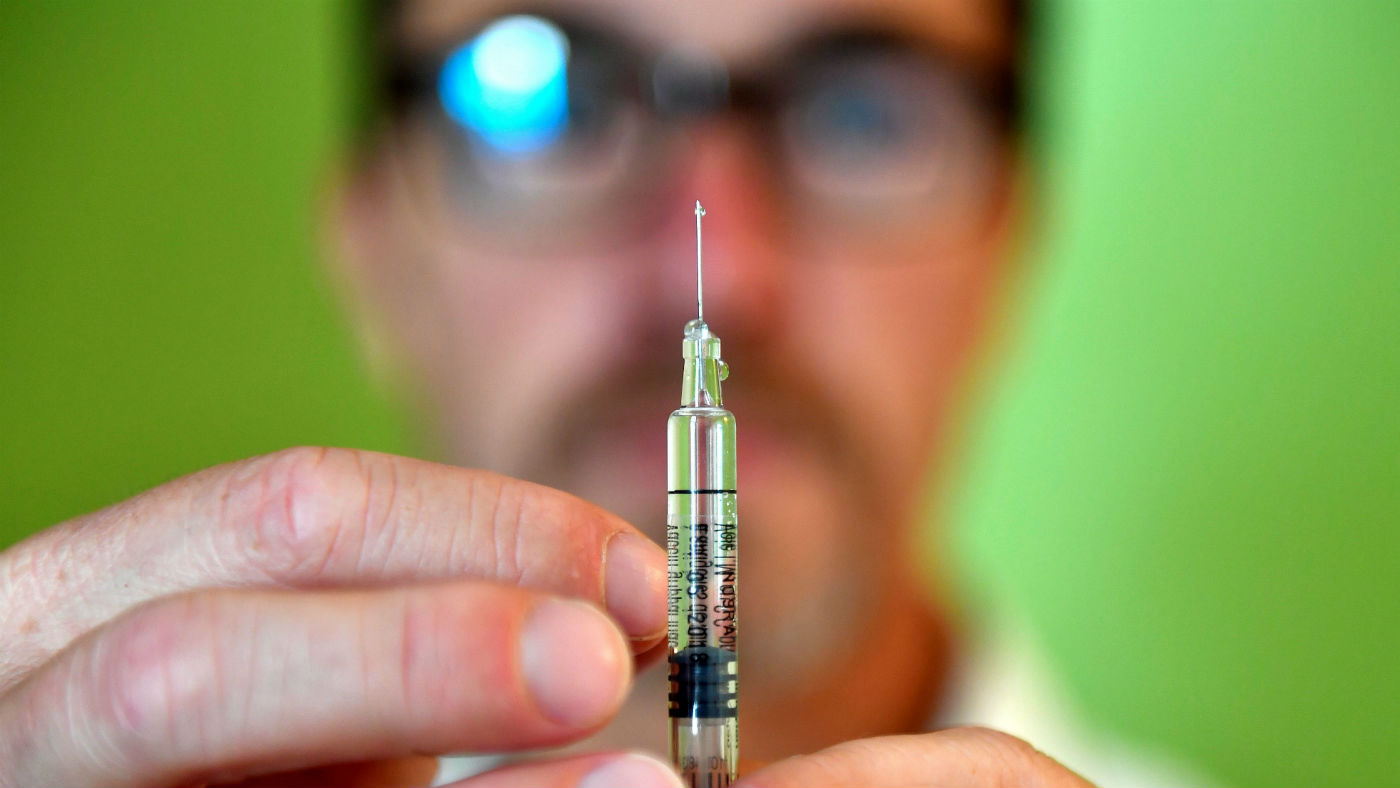Six-a-year anti-HIV injection ‘more effective’ than daily pill
Researchers say long-acting new preventative drug is ‘game changer’ in fight against Aids

A free daily email with the biggest news stories of the day – and the best features from TheWeek.com
You are now subscribed
Your newsletter sign-up was successful
A groundbreaking new drug injected every two months to prevent HIV is more effective than the daily pills currently used to protect again infection with the virus, researchers have announced.
In trials involving thousands of people across seven countries, long-acting injectable drug cabotegravir, developed by GlaxoSmithKline-owned ViiV Healthcare, was found to be 66% more effective than Truvada, the most commonly used daily pill, ABC News reports.
As The New York Times notes, “additional options for prevention are sorely needed”, with around 1.7 million new HIV infections recorded last year.
The Week
Escape your echo chamber. Get the facts behind the news, plus analysis from multiple perspectives.

Sign up for The Week's Free Newsletters
From our morning news briefing to a weekly Good News Newsletter, get the best of The Week delivered directly to your inbox.
From our morning news briefing to a weekly Good News Newsletter, get the best of The Week delivered directly to your inbox.
But “many people are unable or unwilling to take a daily pill” to prevent infection - a strategy known as pre-exposure prophylaxis (PrEP) - “particularly in low-income countries where the coronavirus pandemic is disrupting services and access to antiretroviral drugs”, says the newspaper.
The trials of the anti-HIV jab involved “4,570 cisgender men and transgender women (people who were born male but identify as a woman) who had sex with men”, says ABC News. The participants were randomly assigned to receive Truvada, cabotegravir, placebo pills, or placebo injections.
Over the course of the three-and-a-half-year study, 39 participants who had taken Truvada became HIV positive, compared with only 13 who got cabotegravir injections, according to the HIV Prevention Trials Network, a scientific collaborative that led the research.
“This is a game changer - we can really impact HIV acquisition for people at risk,” said Dr Carlos del Rio, a professor at Emory School of Medicine in Atlanta who was involved in the study.
A free daily email with the biggest news stories of the day – and the best features from TheWeek.com
Harvard University researcher Dr Rochelle Walensky described the findings, presented this week at the Aids 2020 Conference, as “revolutionary”.
“It’s exciting to have another pharma company in the PrEP mix,” she added. “This will create competition and ideally drives costs down.”
-
 The ‘ravenous’ demand for Cornish minerals
The ‘ravenous’ demand for Cornish mineralsUnder the Radar Growing need for critical minerals to power tech has intensified ‘appetite’ for lithium, which could be a ‘huge boon’ for local economy
-
 Why are election experts taking Trump’s midterm threats seriously?
Why are election experts taking Trump’s midterm threats seriously?IN THE SPOTLIGHT As the president muses about polling place deployments and a centralized electoral system aimed at one-party control, lawmakers are taking this administration at its word
-
 ‘Restaurateurs have become millionaires’
‘Restaurateurs have become millionaires’Instant Opinion Opinion, comment and editorials of the day
-
 US approves world’s first vaccine for honeybees
US approves world’s first vaccine for honeybeesSpeed Read Development hailed as ‘exciting step forward’ in effort to halt decline in bee numbers
-
 Home Office worker accused of spiking mistress’s drink with abortion drug
Home Office worker accused of spiking mistress’s drink with abortion drugSpeed Read Darren Burke had failed to convince his girlfriend to terminate pregnancy
-
 In hock to Moscow: exploring Germany’s woeful energy policy
In hock to Moscow: exploring Germany’s woeful energy policySpeed Read Don’t expect Berlin to wean itself off Russian gas any time soon
-
 Were Covid restrictions dropped too soon?
Were Covid restrictions dropped too soon?Speed Read ‘Living with Covid’ is already proving problematic – just look at the travel chaos this week
-
 Inclusive Britain: a new strategy for tackling racism in the UK
Inclusive Britain: a new strategy for tackling racism in the UKSpeed Read Government has revealed action plan setting out 74 steps that ministers will take
-
 Sandy Hook families vs. Remington: a small victory over the gunmakers
Sandy Hook families vs. Remington: a small victory over the gunmakersSpeed Read Last week the families settled a lawsuit for $73m against the manufacturer
-
 Farmers vs. walkers: the battle over ‘Britain’s green and pleasant land’
Farmers vs. walkers: the battle over ‘Britain’s green and pleasant land’Speed Read Updated Countryside Code tells farmers: ‘be nice, say hello, share the space’
-
 Motherhood: why are we putting it off?
Motherhood: why are we putting it off?Speed Read Stats show around 50% of women in England and Wales now don’t have children by 30